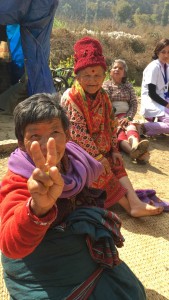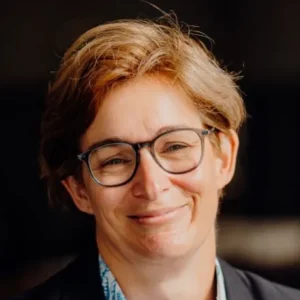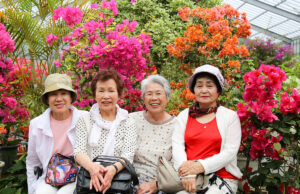Aging | Country Initiatives | Global Ageing News | February 23, 2016
Looking Beyond the Earthquake to Empower Elders in Nepal
BY GlobalAgeing
By Geralyn Magan
Many still associate Nepal with the heartbreaking images of death and destruction that dominated television news programs after a devastating earthquake hit the Asian nation in April 2015.
Despite its long struggle to recover from that natural disaster, Nepal still has plenty to teach the rest of the world about how to empower older people.
Taryn Patterson, policy research associate at the LeadingAge Center for Applied Research (CFAR) and IAHSA team member, traveled to Nepal in mid-February with Ibasho, a not-for-profit organization that uses respect for local culture and social values to frame housing design and care for elders around the world.
While in Nepal, Patterson will be helping Dr. Emi Kiyota, Ibasho’s founder and IAHSA Board Member, and Dr. Yasuhiro Tanaka, a researcher at Tokyo University, to develop plans for an intergenerational gathering place that Ibasho plans to establish in or near Kathmandu, the capital of Nepal.
Building on Previous Experience
 Ibasho has established similar gathering places — called Ibasho Cafés — in Japan and the Philippines, and is considering expanding the café model to the U.S. in the near future.
Ibasho has established similar gathering places — called Ibasho Cafés — in Japan and the Philippines, and is considering expanding the café model to the U.S. in the near future.
The cafés embody the Japanese word “Ibasho,” which means “a place where you can feel like yourself.”
“Basically, these cafés present an alternative to the traditional senior center model we have in the United States,” says Patterson. “They are completely run by seniors and they are intergenerational. People living in the surrounding community participate in planning the café and really dictate what the café will be.”
In Japan, for example, residents of the small fishing village of Ofunato wanted their Ibasho Café to help older people pass on their cultural heritage to the younger generation. This mission was particularly important after the village was severely damaged by the earthquake and tsunami that struck Japan’s eastern coast in 2011.
“Everything was wiped out, so they needed a gathering place,” Kiyota told IAHSA in 2013. “We weren’t interested in disaster relief or in building a temporary structure. We wanted to create a normal place where people could actually come and learn from older people.”
In the Philippines, community members decided that their Ibasho Café would plant a community garden where older people could work side-by-side with children from an adjacent elementary school.
Building Partnerships in Kathmandu
The project in Nepal is being developed in partnership with Bihani Social Venture, a community-based aging services provider focusing on active aging, social engagement, health and well-being, and lifelong learning.
Patterson, Kiyota, and Tanaka will spend their week in Nepal searching for an appropriate site for Kathmandu’s Ibasha Café, meeting with additional prospective partners, and talking with local researchers about the important role that older people can play as change agents to help communities recover from events like natural disasters, economic downturns, and epidemics.
“We are going there to get a network of people interested in the model and the initiative,” says Patterson. “These partners will probably have a role in bringing activities and workshops to the Ibasho site, but they won’t be the ones implementing the café activities. You don’t really go into this process with your own vision of what a café is going to be because the community really dictates that.”
Each Ibasho Café evolves based on the capacity of older people and how they may want to serve the community, says Patterson.
“The unifying features are that the cafés are always intergenerational and they are really focused on empowering elders so they can continue to have an impact in their community,” she says. “I learned from the elders in the Philippines that it is important to take action with the capacities you have, and not to worry about perfection.”
Learning from Other Organizations
Patterson will also be taking the opportunity to learn more about Nepalese providers of aging services during her week in Asia.
She’ll be visiting a number of organizations offering adult day programs, home and community-based services, and housing plus services programs. She’ll also be dropping in on a weeklong training program for caregivers that one organization is sponsoring as a way to strengthen its long-term care workforce.
Patterson hopes to return to the U.S. with many lessons about international models of workforce recruitment and training, housing plus services, and home and community based services. She’s hoping those lessons will help inform CFAR’s ongoing work in these areas.
“This trip came about because of my role as an Ibasho board member,” says Patterson. “But it is clearly aligned with the missions of LeadingAge and the International Association of Homes and Services for the Ageing, and I’m grateful to be able to do this.”

Recently Added
January 22, 2026
January Statement from Vic Rayner
November 18, 2025
Global Ageing Network & LeadingAge 2025 Conference Recap
Translate »




